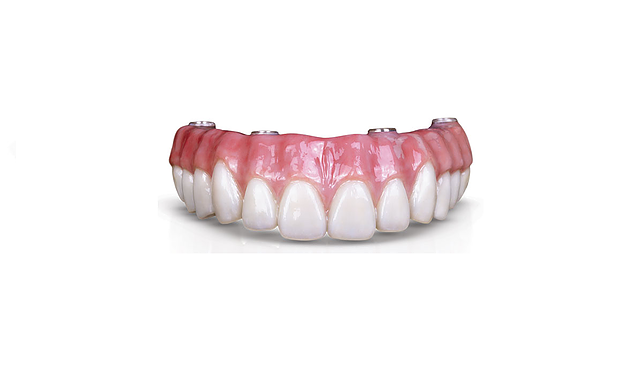Unknown Facts About Dental Sense
Unknown Facts About Dental Sense
Blog Article
See This Report about Dental Sense
Table of ContentsThe Definitive Guide for Dental SenseThe Main Principles Of Dental Sense All about Dental SenseSome Known Factual Statements About Dental Sense
are clinical devices operatively implanted into the jaw to bring back an individual's capability to chew or their look. They offer support for fabricated (phony) teeth, such as crowns, bridges, or dentures. When a tooth is lost due to injury or condition, an individual can experience complications such as quick bone loss, malfunctioning speech, or changes to chewing patterns that result in pain.Dental implant systems contain a dental implant body and oral implant joint and might likewise include an abutment fixation screw. Kids dental. The dental implant body is surgically put in the jawbone instead of the tooth's root. The oral implant abutment is normally connected to the implant body by the abutment fixation screw and extends with periodontals right into the mouth to sustain the attached man-made teeth
(https://dentalsense1.creator-spring.com)Framework of The Oral Implant System choosing dental implants, speak with your dental provider about the prospective advantages and dangers, and whether you are a prospect for the treatment. Points to think about: Your total wellness is an essential factor in establishing whether you are a good prospect for oral implants, how much time it will require to recover, and the length of time the dental implant might remain in area.
Cigarette smoking may affect the healing procedure and lower the lasting success of the dental implant. The healing process for the dental implant body may take a number of months or longer, throughout which time you normally have a short-lived abutment instead of the tooth. the dental implant procedure: Thoroughly follow the dental health instructions offered to you by your dental copyright.
The 15-Second Trick For Dental Sense
Implant failing can cause the demand for an additional operation to fix or change the implant system. Recovers the ability to eat Restores cosmetic appearance Aids maintain the jawbone from diminishing as a result of bone loss Protects the health of the bordering bone and gum tissues Assists maintain nearby (nearby) teeth steady Boosts top quality of life Damage to surrounding natural teeth during implant positioning Injury to the surrounding tissues throughout surgical procedure, such as sinus perforation Injury during surgical treatment (for instance, fracture of bordering jawbone) Inadequate function, such as seeming like the teeth do not attack together normally A feeling that the tooth hangs or twisting in area arising from an abutment screw loosening Implant body failing (looseness of the implant body) due to systemic infection, which may be more likely in people with unrestrained diabetics issues as a result of local infection in bone and periodontals supporting the dental implant body due to postponed recovery, which may be most likely in clients that smoke Problem cleaning the gums around the dental implant, leading to bad dental health Untreated periodontal illness Post-surgical pins and needles due to nerve impingement or damages Constantly alert healthcare service providers and imaging technicians that you have dental implants before any kind of magnetic i thought about this vibration imaging (MRI) or x-ray treatments.
FDA is not knowledgeable about any adverse events reported for MRI or x-ray treatments with dental implants. Oral implants systems are commonly constructed from materials that adhere to worldwide consensus requirements of the International Organization for Standardization (ISO) or ASTM International. These requirements have information of what makes a safe material.

A dental implant is a framework that changes a missing tooth. With screw-like devices, the specialist inserts an implant right into the jawbone, and it acts as a support for an artificial tooth, called a crown.
How Dental Sense can Save You Time, Stress, and Money.
Some individuals are not qualified for oral implant surgical treatment. It is for dental surgeons to operate people with: acute illnessuncontrollable metabolic diseasebone or soft tissue illness or infectionIf these issues are resolved, an individual can have the surgery. In, oral specialists avoid from running on people with: If individuals with any of the above undergo oral implant surgery, there is a greater risk of the dental implant falling short.

Dental implant surgical procedure is a customized process. It's not the same for everyone. The adhering to gives a general overview of what you can expect your dental expert, oral doctor, periodontist or prosthodontist to do: Place the implant operatively. Give you time to recover. Connect the post and final crown, bridge or denture.
Next, your cosmetic surgeon will carefully position the oral implant into your jaw. If your dental implant is near the front of your mouth, your dental professional will make a short-lived tooth for you to use until you recover.
About Dental Sense
Your company can tell you what to anticipate in your situation. Throughout the recovery phase, your jawbone must fuse to the oral implant. This process, called osseointegration, is crucial for security and long-term success. This procedure can take anywhere from three to nine months. Sometimes, it might take longer.
Once your dental implant heals, your dentist can connect the joint (tiny adapter post) and your last restoration (crown, bridge or denture). This normally takes concerning one hour to complete and may need a 2nd small surgical procedure. You should not feel any pain throughout your oral implant treatment because your company will utilize drug to numb your gum tissues.
Report this page